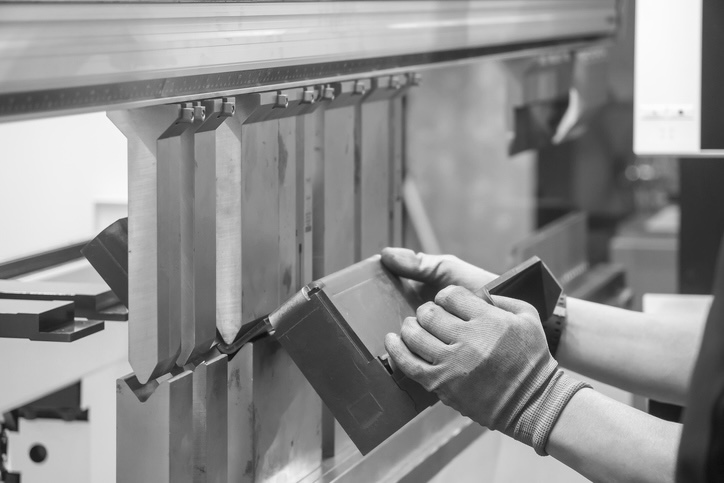
Bridging the Gap Between Marketing Activity and Revenue Generation
Marketing for metals manufacturing companies invest heavily in efforts that can generate impressive activity metrics — website traffic increases, RFQ volumes grow, and quote requests multiply. Yet many struggle with a frustrating reality: Despite increased marketing success, revenue growth remains elusive. The disconnect isn’t in the quality of leads or the competitiveness of pricing. The problem lies in the critical gap between initial prospect engagement and systematic follow-up that drives decisions.
Industry data reveals the scope of this challenge: While approximately 20% of leads convert to qualified opportunities and 30% of those opportunities close as deals, the combined lead-to-deal conversion rate in manufacturing sits at just 6%. This means that for every 100 prospects engaging with your marketing, roughly six become paying customers — and the gap widens without systematic follow-up processes.
Metals Manufacturing Growth Strategy: Discover how Athena’s proven sales coordination approach transforms marketing activity into consistent revenue growth for metals manufacturers.
The False Progress Trap
Most metals manufacturers operate under a dangerous assumption: Generating quotes equals sales progress. This mindset creates what industry experts call “false progress”—the illusion of business development success based on activity rather than results.
The Activity Illusion — Marketing departments report increasing website conversions, sales teams celebrate growing RFQ volumes, and leadership sees busy quote pipelines. However, this activity often masks the fundamental problem: Prospects receive quotes and then disappear into decision-making processes without systematic engagement.
The Quote-and-Wait Syndrome — Traditional approaches in marketing for metals manufacturing follow a predictable pattern: receive inquiry, provide detailed quote, wait for response. This passive approach ignores the complex decision-making reality in metals procurement, where multiple stakeholders evaluate technical specifications, compare alternatives, and navigate internal approval processes.
Relationship Expectations vs. Reality — Metals manufacturing has always been, in part, relationship-driven, leading many companies to assume existing relationships guarantee follow-through. However, even strong relationships require systematic nurturing throughout extended evaluation periods, especially when projects involve significant capital investment or production changes.
Why Marketing for Metals Manufacturing Requires Specialized Follow-Up
The metals manufacturing sector presents unique challenges that generic sales processes fail to address effectively:
Technical Complexity Demands Ongoing Consultation — Unlike commodity purchases, metals manufacturing projects often involve custom specifications, material certifications, and application-specific requirements. Prospects need ongoing technical consultation throughout their evaluation process, not just an initial quote.
Multiple Decision-Maker Involvement — Metals purchasing decisions typically involve engineering teams for technical specifications, procurement for cost analysis, operations for production impact, and executive leadership for final approval. Each stakeholder requires different information and engagement approaches throughout the sales cycle.
Extended Evaluation Periods — specifications, or pause decisions based on project timing changes.
Price Sensitivity Requires Value Communication — While cost remains important, metals buyers make decisions based on total value, including quality, reliability, technical support, and partnership potential. This value proposition requires ongoing reinforcement throughout the evaluation process.
The Systematic Follow-Up Solution
Successful metals manufacturers implement structured follow-up processes that maintain engagement throughout extended sales cycles:
Qualification and Segmentation — Not all leads deserve the same level of follow-up investment. Effective systems qualify prospects based on project size, timeline, decision-making authority, and fit with manufacturing capabilities.
Multi-Touch Engagement Sequences — Rather than sporadic check-ins, systematic approaches include planned touchpoints that provide value at each interaction — technical documentation, case studies, application examples, or industry insights relevant to the prospect’s specific requirements.
Stakeholder-Specific Communication — Successful follow-up addresses different stakeholders with appropriate messaging. Engineering contacts receive technical content, procurement teams get cost analysis support, and executives see strategic value propositions.
Progress Tracking and Accountability — Effective systems include clear processes and tools for tracking prospect engagement, documenting interactions, and maintaining momentum even when prospects seem to go quiet.
The Athena Difference in Marketing for Metals Manufacturing
At Athena, our many years serving metals manufacturers have taught us that effective lead conversion requires more than generic CRM follow-up. Our integrated approach addresses the unique requirements of metals manufacturing sales:
Industry-Specific Sales Coordination: Our team understands the technical complexity and relationship dynamics that characterize metals manufacturing. We provide systematic follow-up that maintains engagement without appearing pushy or generic.
Technical Credibility: Our follow-up communications demonstrate a genuine understanding of metals manufacturing challenges, applications, and requirements. This credibility enables productive conversations that advance prospects through their evaluation process.
Multi-Stakeholder Management: We track and engage different decision-makers within prospective organizations, ensuring each stakeholder receives appropriate information and attention throughout the sales cycle.
Integration with Manufacturing Operations: Our approach aligns follow-up activities with production capabilities, delivery schedules, and technical requirements, ensuring promises made during sales conversations can be fulfilled.
Turn Marketing Investment Into Revenue Growth
The difference between metals manufacturers who struggle with conversion and those who achieve consistent growth isn’t in their marketing sophistication — it’s in their systematic approach to lead conversion. While marketing generates opportunity, only structured follow-up converts that opportunity into revenue.
Don’t let your marketing investment disappear into the quote-and-wait syndrome. Connect with our metals manufacturing specialists to learn how systematic follow-up transforms marketing activity into predictable revenue growth.

